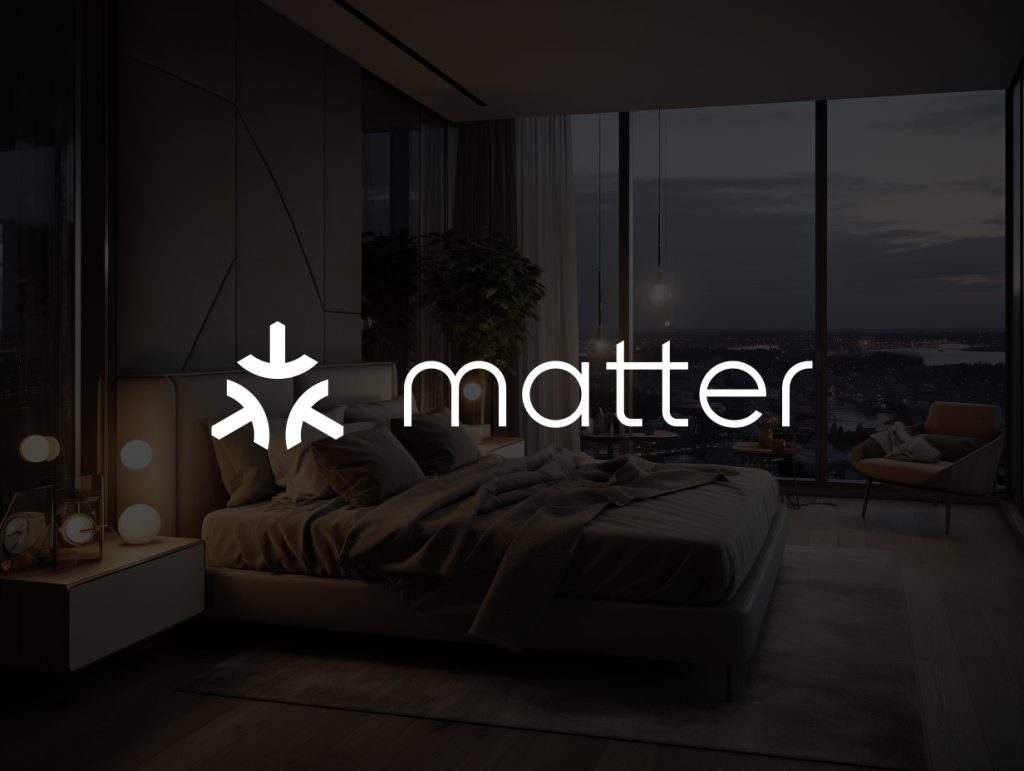Matter, introduced in 2022 by the Connectivity Standards Alliance (CSA), has emerged as a fresh and comprehensive smart home standard. Supported by industry leaders like Amazon, Apple, Google, Samsung, Philips Hue, IKEA, and others, Matter aims to establish a unified and interoperable ecosystem for smart devices. Its goal is to enable seamless collaboration among different brands and platforms, delivering a range of benefits to consumers and device manufacturers alike.
Often hailed as the future of smart homes, Matter holds the promise of enhanced compatibility, security, reliability, simplicity, and innovation. Nonetheless, this standard is still in its nascent stages and hasn’t achieved widespread adoption or market availability. As of June 2023, only a select few product categories have received Matter certification, including smart speakers, displays, cameras, thermostats, doorbells, smoke alarms, routers, hubs, lights, blinds, speakers, and accessories. Many existing smart home devices are still awaiting software updates to support Matter, while some may not be compatible at all.
So, the question arises: is it the right time to embrace the Matter standard in your smart home? To answer this, it’s essential to consider various factors such as your current smart home setup, budget, preferences, and expectations. Let’s explore the advantages and disadvantages of adopting Matter in your smart home:
Advantages
- Compatibility: Matter facilitates effortless integration of smart home devices from different brands and platforms. Regardless of their origin, you can control them through a single app or voice assistant, allowing you to create scenes and automations involving diverse devices. For example, you could configure a morning scene that turns on your Philips Hue lights and IKEA Tradfri blinds upon saying “good morning,” or an automation that powers down your Google Nest thermostat and Samsung SmartThings camera when you leave home.
- Security: Matter-certified devices adhere to stringent security requirements, encompassing encryption, authentication, and regular software updates. This ensures that your devices are well-protected against potential hackers and unauthorized access. Additionally, you can manage privacy settings and data sharing preferences conveniently through a unified app or voice assistant.
- Reliability: By leveraging Internet Protocol (IP) and Thread technologies, Matter-certified devices ensure reliable and speedy communication between devices. They offer consistent performance, even in areas with weak Wi-Fi signals or during power outages, enabling uninterrupted smart home experiences.
- Simplicity: Matter-certified devices feature a streamlined and consistent setup process, often involving QR codes or NFC tags for easy network pairing. Adding new devices to your smart home becomes hassle-free and intuitive.
- Innovation: The Matter standard unlocks a plethora of exciting use cases and features for users, including scene creation, automation, personalization, and more. Manufacturers can harness the potential of Matter to develop novel and innovative products that cater to the needs and expectations of consumers.
Disadvantages
- Cost: Generally, Matter-certified devices come with a higher price tag compared to non-Matter-certified alternatives. Embracing the Matter standard may require additional expenses, either in purchasing new devices or upgrading existing ones. You might also need to invest in supporting hubs or routers compatible with Matter.
- Availability: The availability and variety of Matter-certified devices in the market are currently limited. As of June 2023, only a few product categories have received Matter certification, and many popular brands and products remain incompatible. Consequently, you may have to wait for more brands and products to join the Matter ecosystem before you can fully enjoy the benefits of this standard.
- Personal Preferences: Matter-certified devices may not align with your specific preferences or needs. You might prefer a different app or voice assistant than the one supporting Matter. Design choices or specific features offered by Matter-certified devices may not match your aesthetic sensibilities or functional requirements. For example, you may favor the design of Nanoleaf wall panels over Yeelight Cube lights or desire a smart lock with a keypad rather than one relying solely on Apple Home Key.
Conclusion
Matter showcases tremendous potential as a smart home standard, poised to revolutionize the market by establishing a unified and interoperable ecosystem that benefits both consumers and manufacturers. However, considering its current status as a relatively new and less widespread standard, the decision to adopt Matter in your smart home should be influenced by factors such as your existing smart home setup, budgetary considerations, personal preferences, and expectations. Waiting for more brands and products to support Matter or experimenting with a few Matter-certified devices before making a complete transition could be prudent approaches.






